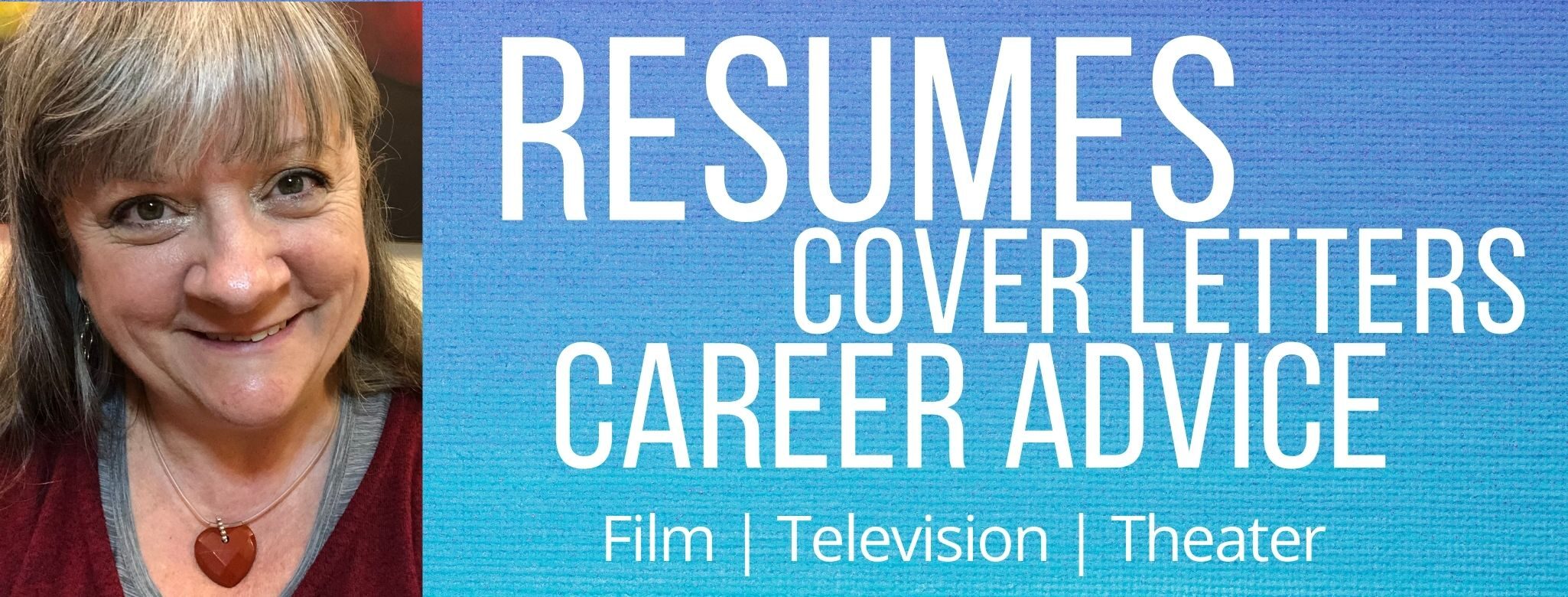
There are some basic principles that I use both when I am analyzing a resume for feedback, and for when I write a new resume. Some of these ideas come from sales and marketing. Do think of yourself as the product that you are selling to a hirer, because you are the solution to their problem.
- Your resume is not about you.
- A confused buyer always says “no”.
- The purpose of a resume is to get you an interview.
That’s it. Just those three ideas holding up the whole shebang. They apply to all industries. They apply to ATS compliant resumes for advertised jobs. They apply to resumes you send after a cold call or a networking opportunity. They apply to your direct submission credits-based entertainment industry resume. They apply to a simple word document, and to a fancy razzle-dazzle brochure. They even apply to your online profiles on employment sites like LinkedIn and Indeed, which let you actually insert multiple keywords across industries – if you want to curate your job search and find the right job quicker. And they surely apply to your professional website where you house your reel and portfolio, if it is part of your job searching arsenal.
Let’s look a little closer.
1. Your resume is not about you.
It IS about the hirer and their needs. This is the principle that informs customization for every application, and the use of keywords. This is why you have easy to find and clear contact information. This why you use highly organized bullets or credits that allow the reader to scan and see your job skills and achievements, and thus see how they are relevant to their own hiring needs.
Your potential hirer might use an ATS (Applicant Tracking System). They do this for a reason – to make their own lives easier and simpler. If they do, then you are wasting your own time if you do not optimize your resume for an ATS.
People want to hire the right person. They want to see candidates that have the real potential to be the right fit. Analyze the job listing, and research the company or individuals involved in the project. Then use the keywords and phrases that highlight HOW you are the solution to their problem and that good fit they are looking for. Tell them what they need to hear about you, not what you want to tell them about yourself.
2. A confused buyer always says “no”.
I know that you want to tell people about all the things that you can do and have done. But (see Principle 1) they don’t need to know what is not relevant to the position they want to fill now, at least not initially. By this I mean that hirers want someone to fill a specific role – and they want to know immediately that you can fill it and are worth further investigation. For this reason, I discourage “Kitchen Sink” resumes, and instead write focused resumes – including having multiple resumes for people with different skill sets or experience.
Also under this rubric is the idea that a Line Producer or Production Executive wants to know exactly what job to which you are applying, and that you have experience relevant to their project. They are super busy people – don’t expect them to enjoy a resume that is a puzzle to decipher. Use the right job title. Organize your credits clearly so that they can see the features, the documentaries or the commercials. Other than a PA gig, producers want a specialist in a particular department. On the other hand, if you are applying for a PA gig, overwhelming your resume with all your student Directing credits, is confusing. Organize your credits with headings that show clearly what is professional and what is student work. Yes student work is different, until it gets bought by a distributer.
By the same token – does your website clarify your main aspiration? If someone comes to it, can they see at a glance that you wish to work as a Cinematographer or a Writer or do Craft Service? Remember, you can have more than one page or section on your site, or even more than one site if you offer different professional services.

3. The purpose of a resume is to get you an interview.
You get the job when you interview and follow up. For this reason I remind everyone that it is a good idea to follow up on your applications, with the question: “When are you going to hold your interviews?” The resume is truly only a summary of relevant work and achievements that make the hirer want to know more.
This is why I recommend curating your job search and only applying to jobs that you actually do want, rather than blanketing every possible employer or using an agency service that submits a general resume for you. Research, apply, follow up, and be ready to research further before your interview series begins. Prepare your space for your virtual interview, which will almost certainly happen now.
Recruiters will check out your social media and online presence. Make sure it is not working against the information in your resume.
Also, don’t keep back anything useful as a surprise for in the interview. It’s like when you pitch a literary agent – you should tell them how the book or script ends.
About your website and this principle – what is the function of your professional site? Is it as a tool for generating business, or as a place to hold your portfolio that you control and own? Is it a visual representation of your resume? In which case it too is to get you an interview, by generating interest or proving the assertions that you can do any particular tasks related to the job. Remember Principle 2 – know its purpose and design your website accordingly – don’t be confusing.
